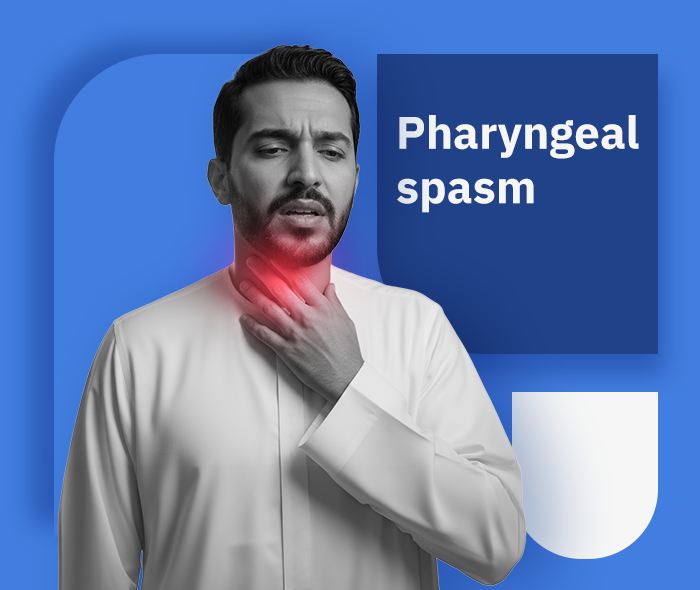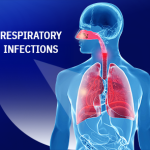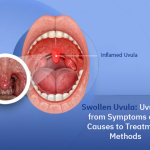Pharyngeal spasm
Many people may experience a sudden tightness in the throat that causes anxiety and fear of choking. This condition is known as pharyngeal spasm. Although it is bothersome, it is usually not dangerous and can be managed. In this article, you will learn everything you need to know about its symptoms, causes, and ways to deal with it.
- Causes of pharyngeal spasm
- Symptoms of Pharyngeal Spasm
- Complications of Pharyngeal Spasm
- Treatment of Pharyngeal Spasm
- Does Pharyngeal Spasm cause breathing or speech problems?
Causes of pharyngeal spasm
Vocal fold spasm occurs when the muscles surrounding the vocal folds contract abnormally, resulting in difficulty breathing or speaking. Its causes are similar to those of pharyngeal spasm, as both involve overlapping neurological, psychological, and physiological factors.
The main causes contributing to pharyngeal spasm include:
Anxiety and psychological stress: Increased sympathetic nervous activity during periods of anxiety causes excessive contraction of the throat muscles.
Exposure to irritants: Throat infections, smoking, alcohol, spicy or acidic foods can irritate the muscles and increase their tendency to contract.
Allergies: In some individuals, laryngeal hypersensitivity makes them more prone to spasms when exposed to certain triggers.
Chronic vocal strain: Continuous shouting or speaking loudly for long periods can fatigue the laryngeal muscles and induce spasms.
Inflammation: Conditions such as laryngitis or vocal fold inflammation can irritate the surrounding muscles, leading to spasmodic contractions.
Gastroesophageal reflux disease (GERD): The reflux of stomach acids into the throat irritates the muscles and triggers reflexive contraction.
Symptoms of Pharyngeal Spasm
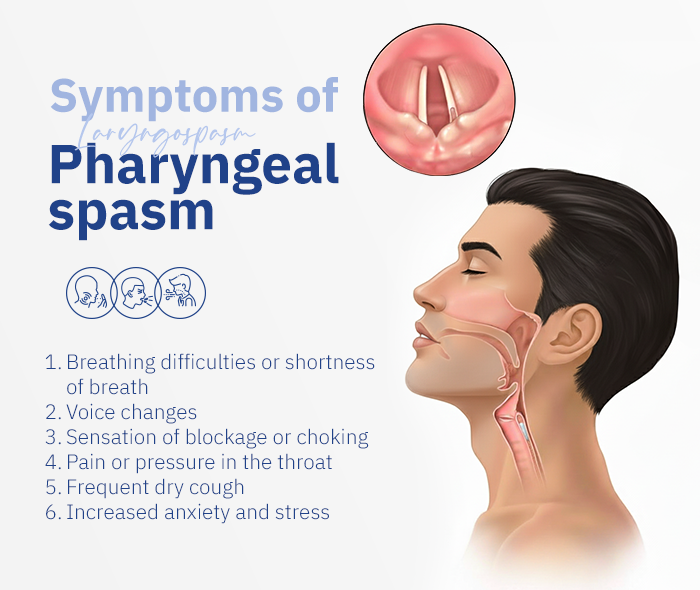
The symptoms of pharyngeal spasm may include:
- Breathing difficulties or shortness of breath: A sensation of not being able to inhale air comfortably.
- Voice changes: Such as hoarseness, voice breaks, or even temporary loss of voice.
- Sensation of blockage or choking: As if something is preventing air from passing through the larynx.
- Pain or pressure in the throat: This may feel like discomfort or a tingling sensation in the area.
- Frequent dry cough: Sometimes appears along with the spasm.
- Increased anxiety and stress: Feelings of worry can worsen the symptoms and make them more noticeable.
If these symptoms persist or cause significant discomfort, it is advisable to consult a doctor for an accurate diagnosis and appropriate treatment.
Complications of Pharyngeal Spasm
Complications of esophageal spasms are usually rare, but in some cases, additional symptoms may appear, such as difficulty swallowing or chest pain. These may indicate the presence of another underlying problem. Some of the most notable complications include:
- Dysphagia (difficulty swallowing)
- Frequent sensation of heartburn
- Brain damage, which may result from direct injuries or a stroke
- Different types of esophageal strictures resulting from swelling or benign growths
Treatment of Pharyngeal Spasm
Medical Treatments
The choice of treatment depends on the underlying cause of the spasm and the severity of the symptoms. The most common medical options include:
- Botox injections: Help temporarily relax the muscle and reduce spasms.
- Muscle relaxants: Prescribed by the doctor to ease contractions and spasms.
- Physical therapy: Involves specific exercises that help relax the throat muscles.
- Surgery (rare): Considered only when other methods fail, where part of the muscle is cut to prevent excessive contractions.
Home Remedies
There are also simple daily steps that can help reduce symptoms:
- Drinking warm beverages to soothe throat muscles.
- Eating small, frequent meals instead of large ones.
- Performing a gentle massage on the neck and throat.
- Avoiding triggers or foods that worsen symptoms.
- Practicing relaxation techniques or meditation to reduce stress.
- Taking supplements like magnesium, which may help reduce spasms (after consulting a doctor)
Does Pharyngeal Spasm cause breathing or speech problems?
Yes, in some cases, pharyngeal spasm may lead to temporary breathing or speech difficulties due to the involuntary contraction of throat or vocal folds muscles. The most common effects include:
Breathing problems:
- Difficulty taking a deep breath.
- Sudden sensation of choking or airway obstruction.
- Wheezing or whistling sounds during breathing.
Speech problems:
- Sudden interruption of speech.
- Hoarseness or weakness of the voice.
- Difficulty producing certain sounds due to muscle tension.
It is important to note that these symptoms are usually temporary and resolve within a few minutes; they don’t lead to complete choking or permanent loss of voice. However, if the symptoms recur or become chronic, it is advisable to consult a doctor to determine the underlying cause and recommend appropriate treatment.
Pharyngeal spasm is an uncomfortable condition, but it is usually not dangerous and often improves once the underlying cause is identified and treated, if the symptoms persist or interfere with your daily life, it is best to consult a specialist for an accurate diagnosis and an appropriate treatment plan.
